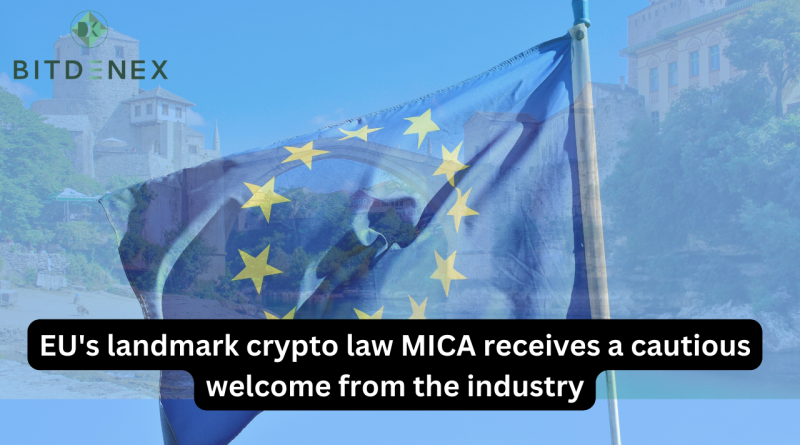EU’s landmark crypto law MICA receives a cautious welcome from the industry
MiCA (Markets in Crypto Assets Regulation) may prove transformative for crypto companies. The MiCA requires them to register with the authorities, have enough capital to maintain stablecoins, and provide clear and fair information to investors – and its text is almost finalized after many years.
There is no denying that crypto moves faster than legislators, so this law has been quite a journey. Originally designed to regulate crypto actors like issuers and wallet providers during an era when initial coin offerings, including scams, were rampant, the draft bill evolved along with the industry’s innovations.
In between conception and completion, new provisions were incorporated or contemplated to deal with the defunct Facebook-backed currency Libra, which was later renamed Diem, the energy usage of bitcoin mining, the rise of non-fungible tokens (NFTs), decentralized finance, and algorithmic stablecoin
Rosy
The law’s architects are still eager to trumpet its benefits, including enabling companies to operate across the 500 million-strong bloc under a single framework.
Legal certainty was a key reason why MiCA was needed, said Stefan Berger, a lawmaker for the European Parliament who negotiated the bill. It is now possible to create offers and orders in the Wild West of crypto using a legal framework that can be relied upon as an investor, issuer, and issuer.
Overall, the industry seems to agree with his optimistic assessment. According to Marina Markezic, executive director of the European Crypto Initiative, the law is generally positive.
In the new world after MiCA, in which crypto projects will need to “grow up” and consider legal compliance as they develop, the new law “is a drastic change” from the status quo, she said. “Overall, MiCA is a positive experience,” she said. All service providers will be subject to mostly the same rules as a result of this unification of Europe.”
According to Blockchain for Europe’s Robert Kopitsch, the NFTs section of the law is unnecessarily complicated. Everyone has a different answer, and that’s never a good thing.”
EU governments wanted NFTs to be exempted entirely from regulation, but lawmakers in the European Parliament argued that many so-called NFTs on the market were actually traded like financial products, and thus susceptible to similar types of mis-spelling and market abuse.
Global Impact
Compared to Markezic, Hansen is less enthusiastic about MiCA’s global repercussions, but he believes they will be widespread.
“I don’t think it ushers in a new era of crypto markets overall,” Hansen said, but he added that given the desire to avoid creating loopholes through regulatory divergence, he “wouldn’t be surprised to see that piece of regulation like Mica having a lot of influence around the world.”
Use this link to sign up and start trading with 0% trading fees at Bitdenex Exchange.

